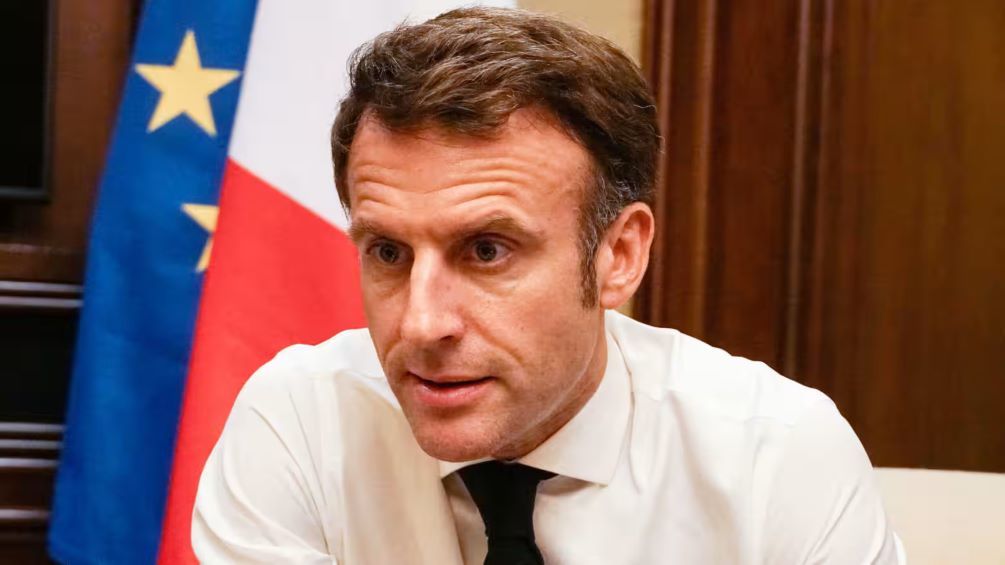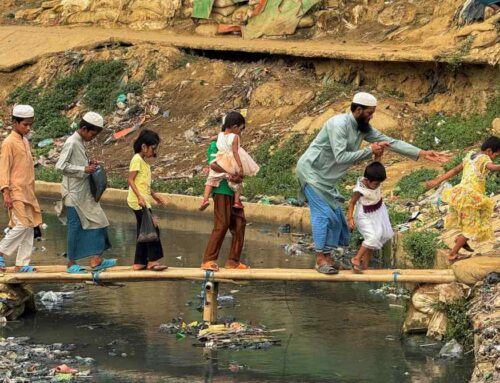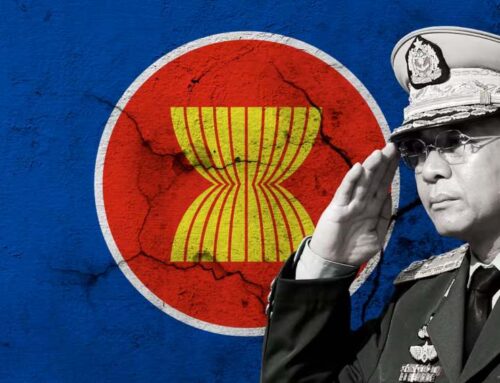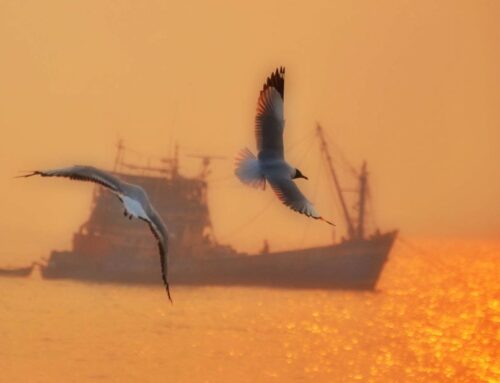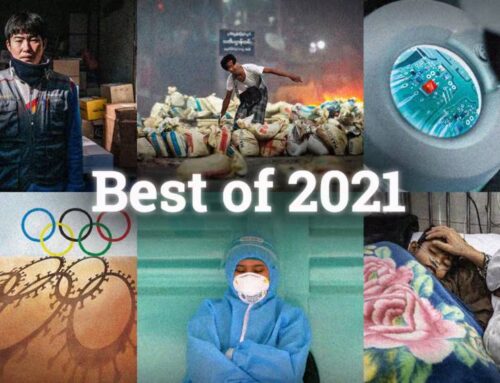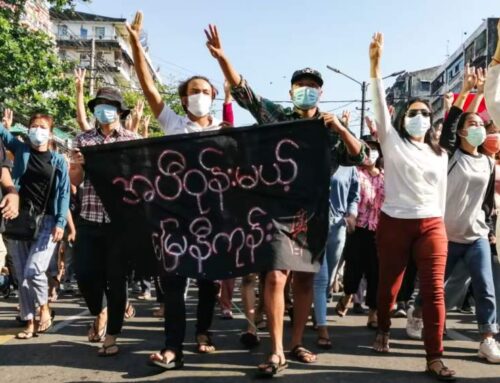Macron sets sights on France-ASEAN dialogue partnership
President condemned Ukraine war, but keeps distance from Myanmar violence{1st Photo Caption: French President Emmanuel Macron speaks in an interview in Bangkok on Nov. 17. (Photo by Yohei Muramatsu)}
Interview
Macron sets sights on France-ASEAN dialogue partnership
President condemned Ukraine war, but keeps distance from Myanmar violence
GWEN ROBINSON, Nikkei Asia editor-at-large
November 18, 2022 17:00 JST
BANGKOK — French President Emmanuel Macron stepped up his Southeast Asian diplomatic push on Thursday, meeting in Bangkok with Thai Prime Minister Prayuth Chan-ocha ahead of his attendance at the Asia-Pacific Economic Cooperation (APEC) leaders forum.
In an interview with Nikkei and the Financial Times, Macron highlighted France’s ambition to expand its role in the Asia-Pacific region, flagging Paris’s interest in becoming a dialogue partner of the Association of Southeast Asian Nations.
“We will progressively multiply our initiatives [in Southeast Asia]. This is totally our mindset, and it is exactly the type of initiative we can take,” he said.
An ASEAN dialogue partnership offers countries a chance to discuss issues including the economy, market access and technology transfer, but more importantly, is a precursor to a free trade agreement with the 10-nation grouping.
The European Union has been an ASEAN dialogue partner since 1977 and is now a strategic partner. France would be the first EU country to independently be a dialogue partner, although it, along with fellow EU members Germany and Italy, are already development partners.
Macron reiterated condemnation of Moscow’s aggression in Ukraine while expressing determination to keep communication channels open to Russian President Vladimir Putin and all parties interested in ending the conflict.
However, on Southeast Asia’s biggest crisis, the escalating violence in Myanmar, the French president took a more distant approach, insisting it was up to regional leaders to resolve the crisis provoked by the military’s Feb. 1, 2021, seizure of power.
Macron arrived on Thursday in Bangkok for the APEC forum after attending the Group of 20 summit in Bali, where he held sideline meetings with Chinese President Xi Jinping, Japanese Prime Minister Fumio Kishida, Indonesian President Joko Widodo, Indian Prime Minister Narendra Modi and others.
The French president commended China’s endorsement of the call by G-20 leaders in Bali for a peaceful resolution of the Ukraine conflict, suggesting a greater mediation role for Beijing.
“I think it was very important to have President Xi Jinping being present at G-20 and endorsing such a statement and call for peace,” Macron said. “I think China has an important role to exercise pressure … on Russia — at least to see we have a balance in our relations. We work together, we respect each other, but you cannot cross the line on nuclear, and you have to pay attention to our international law.
“What we decided to do [at G-20 in Bali] with China, India and a lot of others around the table was very important because we expressed this concern … So I think it’s useful in this context, because it creates the situation where Russia receives the message from the international community, and especially from China, about the fact that peace has to be restored,” Macron said.
As the invited guest of Prayuth, the APEC forum host, Macron is the first European leader to attend the regional forum. The forum groups 21 Asia-Pacific economies including seven Southeast Asian nations, China, the U.S., Japan, South Korea, Australia, Canada and Chile.
Macron portrayed the invitation as regional acknowledgment of France’s increasingly active Indo-Pacific agenda and its place as a regional member through its territories and exclusive economic zones situated in the seas from eastern Africa to the U.S. West Coast.
The U.K. became an ASEAN dialogue partner last year after a two-year process. But Macron stopped short of setting a concrete time frame process for France’s application.
“Indeed, we want to be involved, and I think we are even entitled to do so regarding our geographic and human footprint in the region, [but] I want to be respectful and make it step by step — and at the request and a clear willingness of countries of the region,” he said. “For instance, I’m here, obviously for a bilateral visit but as well for an APEC summit, and it was a request and invitation of the prime minister of Thailand.”
Under its recently revamped Indo-Pacific strategy, France is stepping up security cooperation and other forms of engagement with the region’s countries, such as by increasing joint exercises with India and Japan and patrols in the surrounding seas. The renewed regional push follows the launch in 2018 of France’s Indo-Pacific strategy, which expressed the need to protect French interests and sovereignty as well as “global commons” and freedom of navigation in the region.
However, like other European leaders, the French president has also focused on diplomatic efforts to resolve Russia’s war in Ukraine, and is likely at the APEC forum to reiterate concerns aired by G-20 leaders about the resulting threats to global food security and energy prices.
“Civilians are killed, civilian infrastructure is destroyed by this Russian aggression … we have to focus on that and call for … the end of this war and the restoration of sovereign integrity of Ukraine,” Macron said. “This is not just a regional conflict or something between the West and the East, because these principles are those of the U.N. Charter. And all of us subscribe to these principles. And we have to help Ukraine to resist in this situation.
“The Ukrainians will — this is my hope — come back to the table with the Russians, and the international community will be around this table, and P5 members [the five permanent members of the U.N. Security Council] and the Europeans will be part of it,” he said.
Macron insisted that Poland should determine the circumstances of the recent missile strike that killed two and injured others in Polish territory.
“I think we should not have an open and public confrontation about what happened exactly [in Poland],” he said. “We have to help the Polish authorities to clarify, to provide all the details. This is why with the U.S. and U.K. and Germany we proposed our support in order to … send technical teams and experts and to analyze what happened. We mobilized our satellite images as well to make it clear.”
On the question of Myanmar, Macron described the escalating violence and displacement as a “terrible situation, a humanitarian crisis impacting a lot of countries.”
“We’ve always been very keen on human rights and what’s happening there, and very vocal,” he said. “I believe countries of the region can deal with this crisis and exercise relevant and useful pressure, precisely to build a transition which is the only way to have, first of all, peace and respect for human dignity … I know that a lot of leaders of the region are very keen on increasing the pressure and facilitating a way out. The opposition [by the military regime] is well known, but anything we can do to help … normalization, obviously, is something we would consider.”
France’s revamped Indo-Pacific strategy reflects growing unease following the creation last year of the trilateral AUKUS security pact among Australia, the U.K. and the U.S., as well as Australia’s abrupt cancellation of a contract with France to build nuclear submarines. Under AUKUS, Britain and the U.S. will help Australia acquire nuclear submarines.
Amid big power rivalries in the Asia-Pacific region, France could be a partner “with a lot of ambition and humility and respect” for regional countries, Macron said.
“And I think in the spirit of confrontation between big elephants, having a good friend in this jungle could be an asset — and I think we are probably this reliable and trustworthy good friend in the jungle,” he said.
Macron will speak on Friday at the APEC CEO summit and attend plenary sessions of the APEC leaders meeting. He will go on Saturday to Tunisia for a summit of francophone countries.
Source Link: NIKKEI ASIAN REVIEW
